Montessori
Many people think of Montessori as being an approach for the early years, but this worldwide movement (and lifestyle) is equally relevant to adolescents as it is to pre-schoolers. There are several primary Montessori schools in the UK and three Montessori schools for secondary aged students. You can find many of them in our directory. Montessori Group CEO, Leonor Stjepic, says:
“We often hear that Montessori methods aren’t for all but that’s not the case. Accessible, fun, practical, and rooted in science – that’s Montessori. Many Montessori activities can be adopted in every home and every child can gain from the philosophy.”
This film shows one parent’s perspective of how Montessori education differs from conventional schooling.
“Dr Maria Montessori’s vision of an education system that allows individual children to reach their full potential and develop a life-long love of learning is secured through effective, flexible working relationships with educators that are robust and built on mutual trust – as essential today as it was 100 years ago.
In a rapidly changing world, undergoing a digital revolution, with the consequences for humanity as far-reaching as those of the industrial revolution, Montessori prepares children for the world in which they are growing up. From learning the skills needed for future work, to an understanding of the necessity of respecting the natural world around us; from respect for the diversity of others to self-confidence and emotional resilience – the Montessori pedagogy covers them all.”
The Montessori Group
An article on the Global Diffusion of Montessori Schools was published in 2022 in the Journal of Montessori Research (Volume 8, Issue 2). The study developed robust evidence to document “a total of 15,763 Montessori schools around the globe, roughly 9% of which are government funded.”:
Global Diffusion of Montessori Schools – Journal of Montessori Research (Volume 8, Issue 2)
Maria Montessori
The Montessori approach to education was established by the Italian doctor, Maria Montessori (1870-1952). She has been hailed as one of the most important educators of the 20th century.
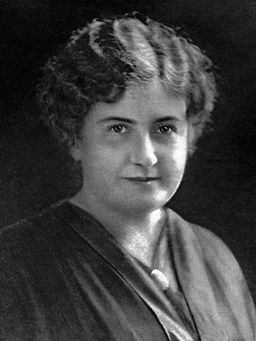
After graduating from medical school, Montessori studied education, philosophy, psychology and anthropology. She initially taught children with special educational needs (SEN).
She approached their education as a scientist, using the classroom as her laboratory for observation and finding ways to help children reach their full potential.
She concluded that these SEN methods should actually be applied to all children.
In 1907 she founded her first school, the Children’s House, in Rome which was to become world famous. Her goal for childhood was to “activate the child’s own natural desire to learn.”
The Montessori Approach
The key features of today’s Montessori schools include:
- ‘Teachers’ observe and guide rather than teach, thus enabling students to learn independently to reach their potential.
- The learning environment is designed to meet the needs of each child’s stage of development.
- A lack of standardised tests allow students to work at their own pace.
- Mixed age groups allow students to help and be helped by others, in a non-competitive environment.
- Children do not to have to sit at desks for long periods. Movement and activity are considered natural functions of childhood from which learning occurs.
- The emphasis is on learning by doing, through real-life practical activities.
- The Montessori classroom uses materials which Maria Montessori designed, including blocks, beads and puzzles. These objects and their associated activities – which must be introduced in a specific order – help children learn about shapes, texture, language, literacy and maths, and support the development of critical thinking.
- There are no rewards, punishments or criticisms. The reward is in the accomplishment of the task and this motivates children to achieve.
- The ‘teacher’ leads by example and gains authority through showing children respect and courtesy.
- It is accepted that all students are individuals and learn in different ways, at their own pace.
- Parent involvement is encouraged.
- Montessori is a lifestyle.
- Children are encouraged to do things for themselves, to plan their own work, thus becoming independent and self-reliant.
- Children work in a three-hour block, so that they can become deeply engaged in a task without interruption.
- The Montessori Curriculum is inspired by Maria Montessori’s Five Great Lessons which aim to give children a big picture perspective of the world:
- 1st Great Lesson: The Coming of the Universe
- 2nd Great Lesson: The Coming of Life
- 3rd Great Lesson: The Coming of Humans
- 4th Great Lesson: The History of Writing
- 5th Great Lesson: The History of Mathematics
- The National Curriculum subjects are usually offered alongside the Montessori Curriculum but there is more emphasis on drawing out connections between subjects. Therefore, topic work is common.
- Global awareness is important as well as preparation for the future world in which the child will live.
The Scientific Basis for Montessori
Dr Angeline Lillard presents the research behind the foundations of Montessori education in her book, Montessori: The Science Behind the Genius. “Amid the clamor for evidence-based education, she presents the studies that show how children learn best, makes clear why many traditional practices come up short, and describes an ingenious alternative that works.”
Lillard gives an overview of her book in a ten-part presentation, the first of which you can watch below. She says:
“I decided to take a Montessori training course on infant development. There was so much enthusiasm about Montessori but sometimes I would wonder… I was sceptical…
But I became increasingly impressed by how this woman 100 years ago – simply by watching children – arrived at so many of the same conclusions that our careful scientific research is reaching today.
What I didn’t expect would happen in the course of writing this book was that I would become increasingly disturbed by traditional education. Why don’t we incorporate these findings more in how we educate children today?”
Dr Angeline Lillard
A glossary of terms and components of the Montessori approach can be found here: https://montessori-ami.org/resource-library/facts/glossary-montessori-terms
How to Choose a Montessori School
The Montessori method was never trademarked, so schools will vary from one to another in terms of how much they adhere to Maria Montessori’s original ethos. Many for example combine the Montessori curriculum with the National Curriculum.
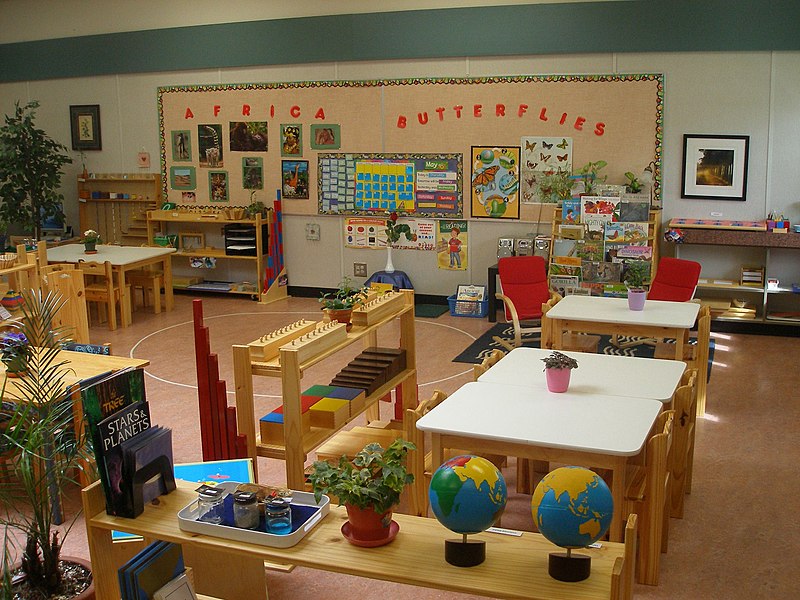
There are several accreditation boards which can guide you in your research:
Association Montessori Internationale
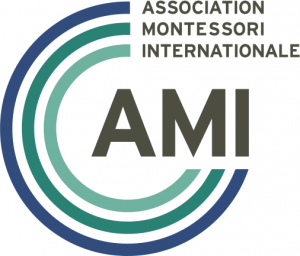
AMI was founded in 1929 by Dr Maria Montessori herself with two goals in mind:
- To further her life’s work in its original integrity and completeness.
- To guide its development and application in the interests of all children.
AMI is a source of Montessori training as well as a centre for continuing research and development.

The Montessori Group
The Montessori Group’s accreditation and recognition programmes have been in operation for over 22 years (called the Montessori Evaluation and Accreditation Board, MEAB). In 2021, the scheme was updated and launched as the Standards & Training Accreditation Review (STAR) by Montessori Centre International (MCI).
Montessori Education UK
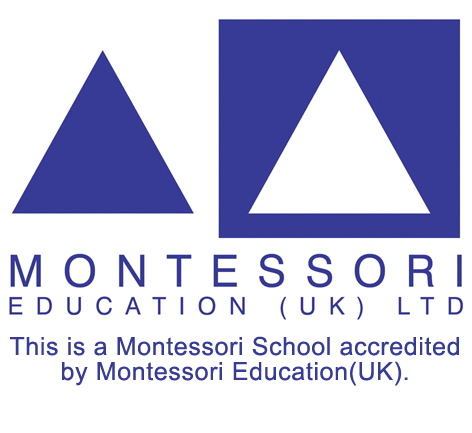
Founded in 1993, ME(UK) is a registered charity committed to promoting high standards across Montessori schools and training providers in the UK.
Montessori Training
The Montessori Group – which includes Montessori Centre International (MCI) and Montessori St Nicholas Charity (MSN) – has teamed up with Leeds Beckett University’s Carnegie School of Education to launch the International Montessori Institute. Established on August 31st, 2020 on what would have been Dr Montessori’s 150th birthday, the Institute supports the development of accredited Montessori programmes housed in the subject area of Interdisciplinary Studies and actively researches the impact of the Montessori Method. They have the UK’s first full suite of dedicated undergraduate, Masters and PhD courses in Montessori education, the world’s first Professor of Montessori and will be a centre for quality research into Early Years and the Montessori approach in the UK.
There is also a range of courses available through the AMI (Association Montessori Internationale):
Diploma Courses
- Assistants to Infancy (0-3)
- Primary/Casa dei Bambini/Children’s House (3-6)
- First Plane (0-6)
- Elementary (6-12)
- Adolescent (12-18)
Certificate Courses
- Core Knowledge
- Dementia and Ageing
- Inclusive Education
- Montessori Administrator
- Montessori Classroom Assistant
- Montessori Sports Coach
Montessori Schools Directory
You can search our directory for a Montessori school near you.
Voices from the Sector
You can read some of our interviews with Montessori teachers.
Notable and Famous Faces from Montessori Schools
The Wall Street Journal (2011) is quoted as saying that a Montessori education is the surest route to joining the creative elite. The Montessori Group website lists many examples to back up this statement.
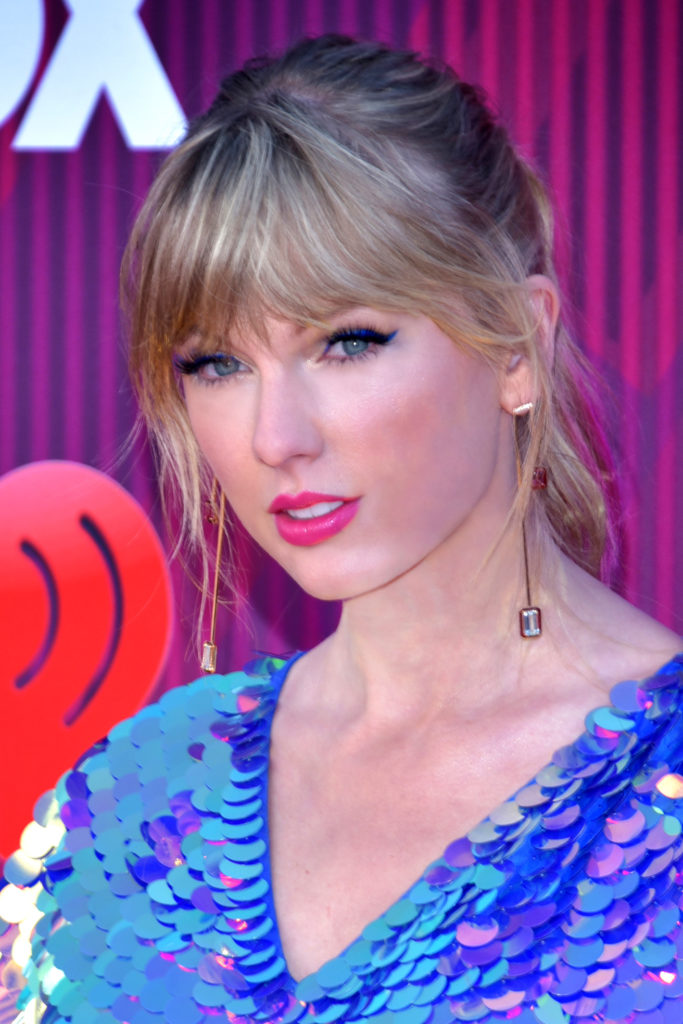
There are many high achievers who were Montessori educated, including Singer/Songwriters, Taylor Swift, Beyoncé Knowles and P Diddy; Actors, John Cusack, Helen Hunt and George Clooney; Basketball Player, Stephen Curry; Amazon founder, Jeff Bezos and Facebook’s Mark Zuckerberg.
Will Wright, video game pioneer, says Montessori was the imagination amplifier that prepared him for creating The Sims, Sim City and Super Mario Brothers.
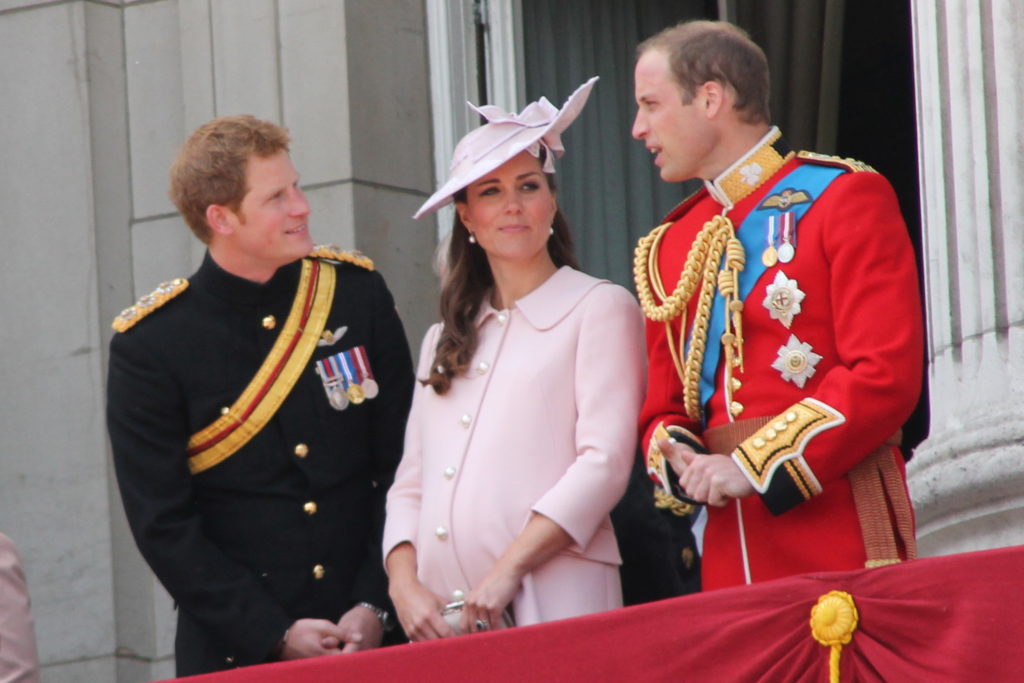
High profile members of society who have chosen to send their children to Montessori schools include the Duke and Duchess of Cambridge, and Supermodel, Kate Moss.
Books about the Montessori Approach
Dr Montessori’s Own Handbook: A Short Guide to Her Ideas and Materials, by Maria Montessori
The Essential Montessori, by Elizabeth Hainstock
The Absorbent Mind, by Maria Montessori
Secret of Childhood, by Maria Montessori and Joseph Costelloe
The Discovery of the Child, by Maria Montessori
The Formation of Man, by Maria Montessori
To Educate the Human Potential, by Maria Montessori
Education for Human Development: Understanding Montessori, by Maria Montessori
Montessori – A Modern Approach, by Paula Polk Lillard
Montessori in the Classroom, by Paula Polk Lillard
Montessori Today, by Paula Polk Lillard
The Montessori Controversay, by John Chattin-McNicholas
The Pink What? by DePe Stephenson
Montessori: The Science Behind the Genius, by Angeline Stoll Lillard
Montessori Read & Write, by Lynne Lawrence
Montessori Play & Learn, by Lesley Britton
Montessori Facebook Groups
Progressive Education Group – Our supportive forum discussing progressive approaches to education (including Montessori) and why we need them.
Other Montessori Networks
The Montessori Network – This is the community network of the Montessori Group, “a hub to explore thought-provoking discussions, engage in exciting events and share unique experiences”.
Lead Montessori – A global learning community of practice. “We network, share and collaborate.”
Montessori Europe – As a hub for Montessori education in Europe, Montessori Europe is committed to strengthening the ties between Montessorians in Europe and beyond.

